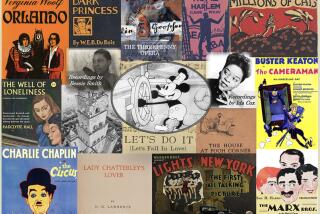A Step for Copyright Protection
- Share via
The enemy was clearly defined when 160 nations gathered to create a uniform response to electronic piracy, a crime wave that costs the computer software industry alone about $13 billion annually. That 1996 meeting of the World Intellectual Property Organization established a framework for international treaties to extend copyright protections, and it came just in time. The pirates were bootlegging movies before the first week’s box office receipts had been tallied.
Most nations want roles in preventing that sort of theft, and those that ignore it or quietly acquiesce should be punished with trade sanctions. But here’s the problem: The treaties go into effect only when they are signed by at least 30 countries, and it was clear that most governments were waiting for Washington to make the first move. Now that has happened; last month the Senate voted 99 to 0 in favor of the Digital Millennium Copyright Act.
The bill sets harsh sanctions for electronic piracy. But it also provides protections in schools and libraries, provisions that earned the measure a list of supporters. Among them are the Motion Picture Assn. of America, the National Music Publishers’ Assn. and the Newspaper Assn. of America.
But considerable debate remains on a companion House bill that is scheduled before the Commerce Committee today. Reps. Rick Boucher (D-Va.) and Scott L. Klug (R-Wis.) say the bill goes much too far in impeding the right of libraries, for instance, to freely access copyrighted material. If the House bill can incorporate some further protections for fair and legitimate use of copyrighted materials, it should. But without real teeth in the bill, producers of creative material will shun the Internet, crippling a vital new form of information.






